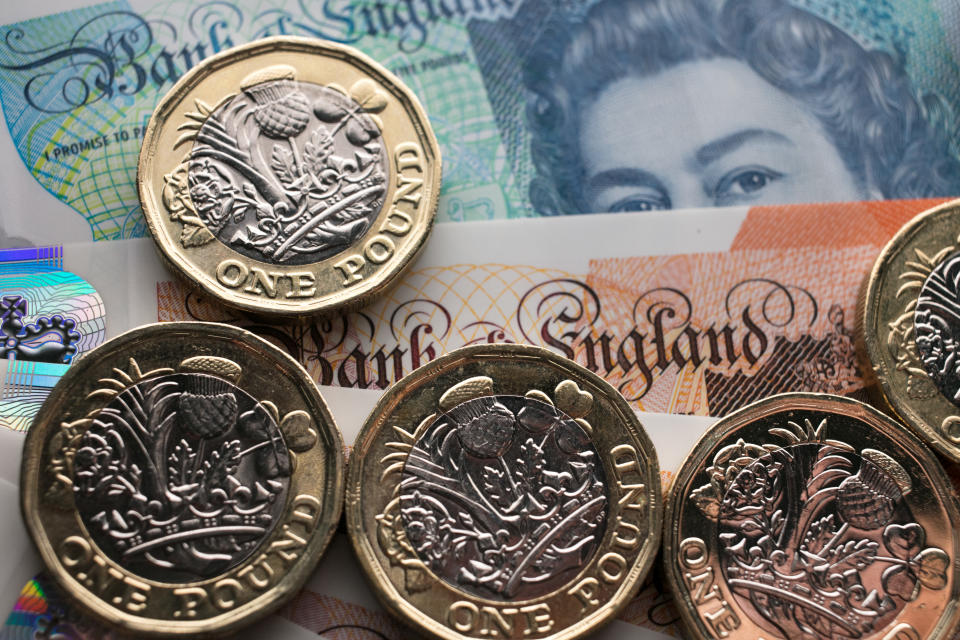Around 775,000 people pay more tax than millionaires - are you one of them?

Over three-quarters of a million people are paying more tax on every extra pound they earn than millionaires.
Thanks to successive tweaks, reviews, revisits and updates to the tax system, hundreds of thousands of ‘ordinary working families’ find themselves caught out by the taxman.
The key issue, says mutual insurer Royal London, is that there are numerous marginal tax rates, many of them linked to what benefits people receive.
MORE: £500bn has ‘gone missing’ from UK finances as Brexit worries weigh heavy
Royal London says some 775,000 people are paying well over the 45% top tax rate because as their incomes rise they begin to lose tax, pension and child benefit allowances.
Under the current UK income tax system, the amount of tax paid on an extra pound is intended to rise steadily as incomes rise.
Those under £11,500 pay no tax, those up to £45,000 pay tax at 20p in the pound, those up to £150,000 pay 40p in the pound, and those on higher incomes – including millionaires – pay 45p in the pound in income tax for each extra pound that they earn.
MORE: Millions of British workers are sitting on a six-figure pension lump sum without realising it
Steve Webb, director of policy at Royal London, said: “Most people would agree that as people earn more, they should pay a higher rate of tax.
“But a series of complex changes which have been bolted on to the tax system over recent years mean this is no longer true.
“This analysis shows that there are hundreds of thousands of people who pay more tax on each extra pound that they earn than a millionaire – in some cases losing 60p or 70p in the pound.”
The three main groups identified by Royal London are:
1: Parents where one partner earns between £50,000 and £60,000 per year – since January 2013, this group loses 1% of their child benefit for each £100 per year that they earn above the £50,000 floor; a couple with two children on £50,000 per year receives £1,789 per year in child benefit; if the higher earner earns £51,000 they lose 10% of their child benefit or £179.
The extra £1000 costs them £400 in income tax, £179 in child benefit, and £20 in National Insurance or £599 in total; this is a tax rate of 59.9%. It is estimated that 375,000 people are in this category.
Family earns £1,000 extra but loses: | |
– Regular income tax @ 40% | £400 |
– Reduced child benefit (2 children) | £179 |
– National Insurance Contributions | £20 |
Total loss per £1,000 | £599 Or a tax rate of 59.9% |
2: People who earn between £100,000 and £123,000 – The “personal allowance” of tax-free income falls by 50p for every £1 earned over £100,000. So earning £1,000 over that threshold results in an extra £200 of income tax. The effective tax rate is 62% and is thought to be paid by 250,000 people.
Worker earns £1,000 extra but loses: | |
– Regular income tax @ 40% | £400 |
– Reduced personal allowance | £200 |
– National Insurance Contributions | £20 |
Total loss per £1,000 | £620 Or a tax rate of 62.0% |
MORE: Thousands of pensioners ‘risk home repossession’ as government axes mortgage benefit
3: People with total taxable income (including employer pension contributions) between £150,000 and £210,000 per year – those on lower incomes can contribute £40,000 per year into a pension and benefit from tax relief; above the £150,000 threshold, this ‘annual allowance’ is reduced at a rate of 50p in the pound. Many people in this income band will be paying tax at 45%, so a reduction of 50p in the annual allowance will mean an additional 22.5% in tax.
Once National Insurance Contributions are factored in, this means a tax rate of 69.5%. It is estimated that around 150,000 people may be affected.
Worker earns £1,000 extra but loses: | |
– Regular income tax @ 45% | £450 |
– Reduced pensions annual allowance | £225 |
– National Insurance Contributions | £20 |
Total loss per £1,000 | £695 Or a tax rate of 69.5% |

 Yahoo Finance
Yahoo Finance 
